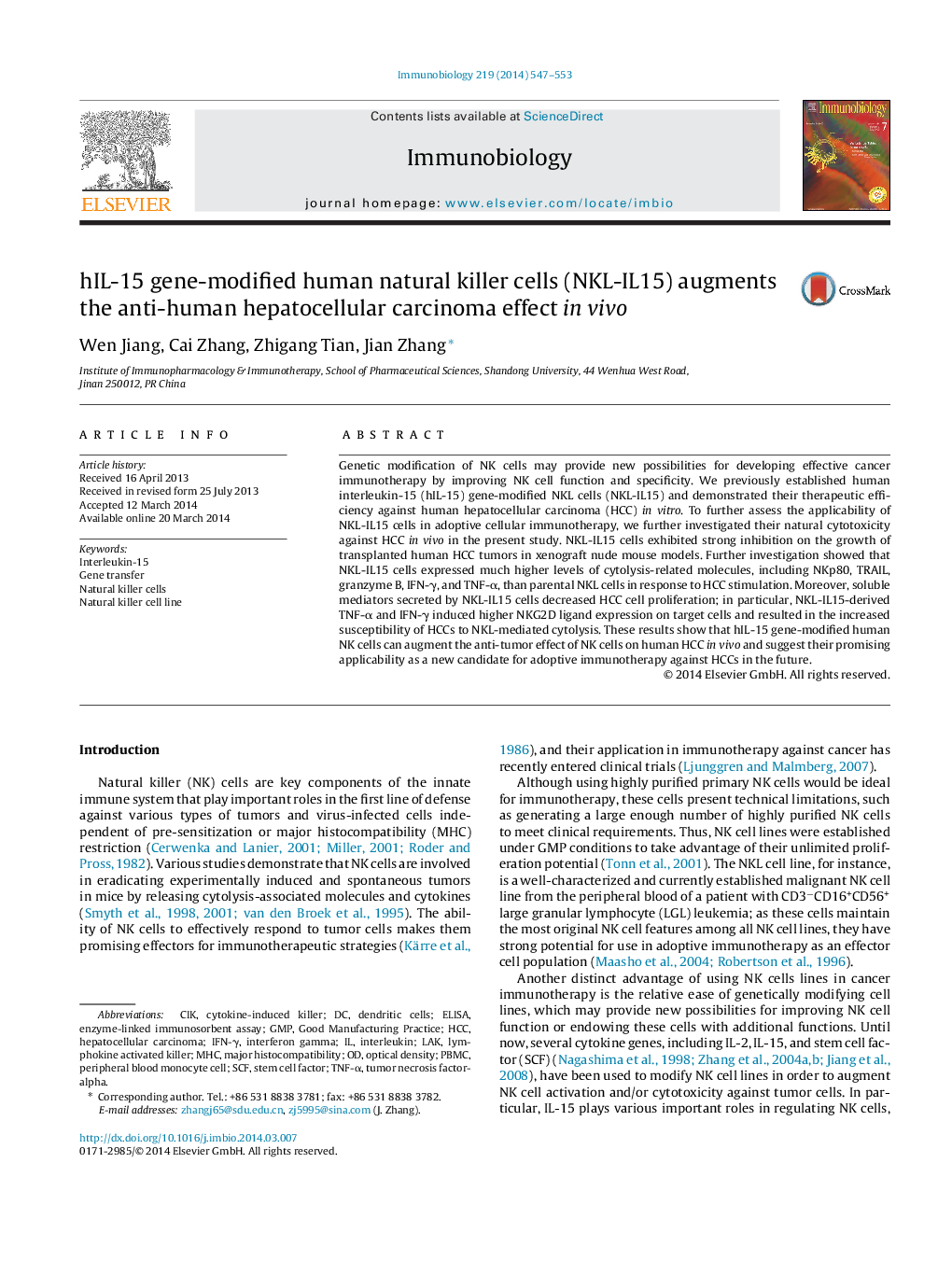| Article ID | Journal | Published Year | Pages | File Type |
|---|---|---|---|---|
| 10940929 | Immunobiology | 2014 | 7 Pages |
Abstract
Genetic modification of NK cells may provide new possibilities for developing effective cancer immunotherapy by improving NK cell function and specificity. We previously established human interleukin-15 (hIL-15) gene-modified NKL cells (NKL-IL15) and demonstrated their therapeutic efficiency against human hepatocellular carcinoma (HCC) in vitro. To further assess the applicability of NKL-IL15 cells in adoptive cellular immunotherapy, we further investigated their natural cytotoxicity against HCC in vivo in the present study. NKL-IL15 cells exhibited strong inhibition on the growth of transplanted human HCC tumors in xenograft nude mouse models. Further investigation showed that NKL-IL15 cells expressed much higher levels of cytolysis-related molecules, including NKp80, TRAIL, granzyme B, IFN-γ, and TNF-α, than parental NKL cells in response to HCC stimulation. Moreover, soluble mediators secreted by NKL-IL15 cells decreased HCC cell proliferation; in particular, NKL-IL15-derived TNF-α and IFN-γ induced higher NKG2D ligand expression on target cells and resulted in the increased susceptibility of HCCs to NKL-mediated cytolysis. These results show that hIL-15 gene-modified human NK cells can augment the anti-tumor effect of NK cells on human HCC in vivo and suggest their promising applicability as a new candidate for adoptive immunotherapy against HCCs in the future.
Keywords
GMPCIKSCFIFN-γPBMCgene transferHCCinterleukinInterleukin-15Major histocompatibilityEnzyme-linked immunosorbent assayELISAGood Manufacturing Practicetumor necrosis factor-alphaDendritic cellsNatural killer cellsStem Cell FactorTNF-αcytokine-induced killerLAKlymphokine activated killerMHCoptical densityHepatocellular carcinomaInterferon gamma
Related Topics
Life Sciences
Biochemistry, Genetics and Molecular Biology
Cell Biology
Authors
Wen Jiang, Cai Zhang, Zhigang Tian, Jian Zhang,
